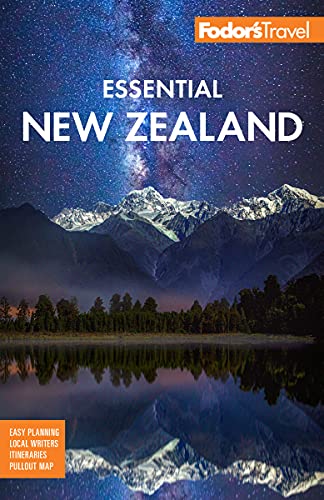New Zealand Vocabulary Tips
From the moment you begin your New Zealand (or Aotearoa, as you'll learn in the airport) adventure, you'll confront the mélange of Māori words, Briticisms, and uniquely Kiwi phrases that make the language vibrant . . . but perhaps a bit hard for American ears to navigate.
New Zealand is a bilingual nation, as reflected in its national anthem. Although Māori isn't conversational language, a basic knowledge of Māori is essential for understanding phrases, the meaning of place-names, as well as the pronunciation of certain words or place-names. For a crash course in the best way to pronounce New Zealand place-names, the best thing to do is watch the weather report on the news.
Talking Kiwi is not as daunting as Māori pronunciations for those with the English language under their belt. New Zealanders tend to use the Queen's English, colored up with their unique brand of abbreviated slang. Most Kiwi turns-of-phrase are easy to unravel—a car park is a parking lot, for example. Others, like dairy (a convenience or corner store), can be confused with American terminology. Only occasionally will you find yourself at a complete loss (with words like jandal, for example—Kiwi for flip-flop), and even then New Zealanders will be happy to set you right. Below are common Māori and Kiwi phrases that you'll likely hear throughout the country.
Māori Pronunciation
Knowing how to pronounce Māori words can be important while traveling around New Zealand. Even if you have a natural facility for picking up languages, you'll find many Māori words to be quite baffling. The West Coast town of Punakaiki (pronounced poon-ah-kye-kee) is relatively straightforward, but when you get to places such as Whakatane, the going gets tricky—the opening wh is pronounced like an f, and the accent is placed on the last syllable: "fa-ca-tawn-e." Sometimes it is the mere length of words that makes them difficult, as in the case of Waitakaruru (why-ta-ka-ru-ru) or Whakarewarewa (fa-ca-re-wa-re-wa). You'll notice that the ends of both of these have repeats—of "ru" and "rewa," which is something to look out for to make longer words more manageable. In other instances, a relatively straightforward name like Taupo can sound completely different than you expected (Toe-paw). Town names like Waikanea (why-can-eye) you'll just have to repeat to yourself a few times before saying them without pause.
The Māori r is rolled so that it sounds a little like a d. Thus the Northland town of Whangarei is pronounced "fang-ah-day," and the word Māori is pronounced "mah-aw-dee," or sometimes "mo-dee," with the o sounding like it does in the word mold, and a rolled r. A macron indicates a lengthened vowel. In general, a is pronounced ah as in "car"; e is said as the ea in "weather." O is pronounced like "awe," rather than oh, and u sounds like the u of "June." Ng, meanwhile, has a soft, blunted sound, as the ng in "singing." All of this is a little too complicated for those who still choose not to bother with Māori pronunciations. So in some places, if you say you've just driven over from "fahng-ah-ma-ta," the reply might be: "You mean 'wang-ah-ma-tuh’." You can pronounce these words either way, but more and more people these days are pronouncing Māori words correctly.
Māori Glossary
Common Māori Words
Aotearoa: Land of the long white cloud (New Zealand's Māori name)
Haere mai: Welcome, come here
Haere rā: Farewell, good-bye
Haka: "Dance," implies history, life-force, rhythm, words and meaning of the haka, made internationally famous by the All Blacks, who perform it before each match
Hāngi: Earth oven, food from an earth oven, also used to describe a feast
Hongi: Press noses in greeting
Hui: Gathering
Iwi: People, tribe
Ka pai: Good, excellent
Kai: Food, eat, dine
Karakia: Ritual chant, prayer, religious service
Kaumātua: Elder
Kia ora: Hello, thank you
Koha: Customary gift, donation
Kūmara: Sweet potato
Mana: Influence, prestige, power
Marae: Traditional gathering place, sacred ground
Moko: Tattoo
Pā: Fortified village
Pākehā: Non-Māori, European, Caucasian
Pounamu: Greenstone
Rangatira: Chief, person of rank
Reo: Language
Tāne: Man
Tangata whenua: People of the land, local people
Taonga: Treasure
Tapu: Sacred, under religious restriction, taboo
Wahine: Woman
Waiata: Sing, song
Waka: Canoe
Whakapapa: Genealogy, cultural identity
Whānau: Family
Kiwi Glossary
Common Kiwi Words
Across the ditch: Over the Tasman Sea in Australia (Australians are called Aussies)
Bach: Vacation house (pronounced batch)
Cabbage: Stupid
Crook: Sick
Fanny: Woman's privates (considered obscene)
Footie: Rugby football
Gutted: Very upset
Kiwi: A native, brown flightless bird, the people of New Zealand, or the furry fruit
Knackered: Tired
Nappie: Diaper
Pissed: Drunk
Sealed road: Paved road
Shout: Buy a round of drinks
Sticking plaster or plaster: Adhesive bandage
Stuffed up: Made a mistake
Sweet as: All good
Ta: Thanks
Torch: Flashlight
Tramping: Hiking
Whinge: To whine
When Dining Out
For most visitors, dining out is usually the cause for most lost-in-translation moments, as Kiwis tend to follow British terminology. Here are a few tips:
Aubergine: Eggplant
Capsicum: Bell pepper
Cuppa: Cup of tea or coffee
Entrée: Appetizer
Flat white: Coffee with milk (equivalent to a café au lait)
Lemonade: Lemon-flavored soda (like Sprite or 7-Up)
Lollies: Candy
Mains: Main course
Pavlova: A meringue cake
Serviette: Napkin
Tea: Dinner (also the beverage)




